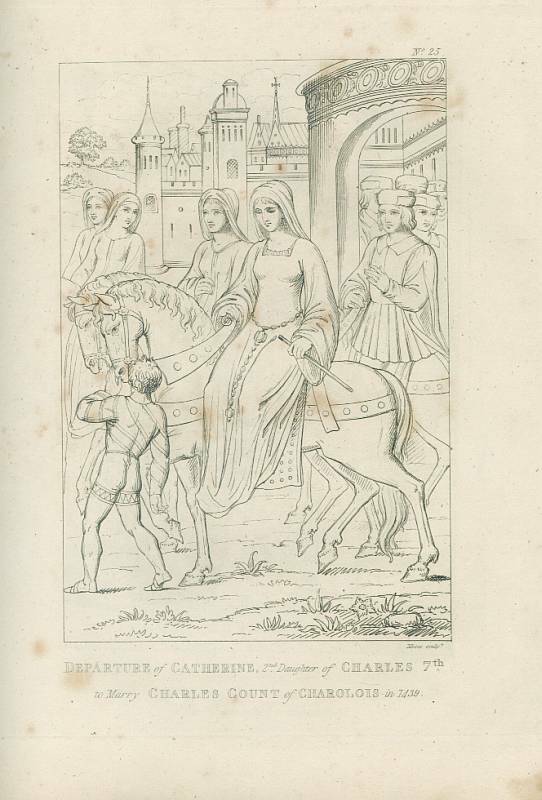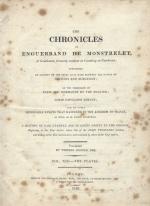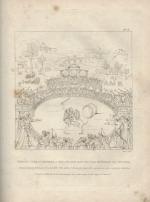Monstrelet, The Plates Volume for: The Chronicles of Enguerrand de Monstrelet, a
The Plates Volume for: The Chronicles of Enguerrand de Monstrelet, a Gentleman formerly resident at Cambray in Cambresis; containing an account of the cruel civil wars between the houses of Orleans and Burgundy; of the possession of Paris and Normandy by the English; their expulsion thence; and of other memorable events that happened in the Kingdom of France, as well as in other Countries.
Volume XIII (of XIII) – The Plates only. London, Longman, Hurst, Rees and Orme, 1810. 4°. (8) pages, 51 plates (one fold-out). Modern half-leather with new endpapers and gilt lettering on spine. Excellent condition of the binding. The original plates in excellent condition but with foxing throughout.
Enguerrand de Monstrelet (c. 1400 – 20 July 1453), was a French chronicle writer and author of the Chronique de Enguerrand de Monstrelet. He was born Picardy, most likely into a family that was of the minor nobility.
In 1436 and later he held the office of lieutenant of the gavenier (i.e. receiver of the gave, a kind of church rate) at Cambrai, and he seems to have made this city his usual place of residence. He was for some time bailiff of the cathedral chapter and then provost of Cambrai. He was married and left some children when he died.
Little else is known about Monstrelet except that he was present, not at the capture of Joan of Arc, but at her subsequent interview with Philip the Good, duke of Burgundy. Continuing the work of Froissart, Monstrelet wrote a Chronique, which extends to two books and covers the period between 1400 and 1444, when, according to another chronicler, Mathieu d’Escouchy, he ceased to write. But following a custom which was by no means uncommon in the Middle Ages, a clumsy sequel, extending to 1516, was formed out of various chronicles and tacked on to his work.
Monstrelet’s own writings, dealing with the latter part of the Hundred Years’ War, are valuable because they contain a large number of documents which are certainly, and reported speeches which are probably, authentic. The author, however, shows little power of narration; his work, although clear, is dull, and is strongly tinged with the pedantry of its century, the most pedantic in French history. His somewhat ostentatious assertions of impartiality do not cloak a marked preference for the Burgundians in their struggle with France.
Among many editions of the Chronique may be mentioned the one edited for the Société de I’histoire de France by M Douet d’Arcq (Paris, 1857–1862), which, however, is not very good. See A Molinier, Les Sources de I’histoire de France, tomes iv. and v. (Paris, 1904). (Wikipedia)
- Keywords: Catalogue Four – International Art · French History Rare
- Language: English
- Inventory Number: 27053AB
EUR 195,--
© 2025 Inanna Rare Books Ltd. | Powered by HESCOM-Software













